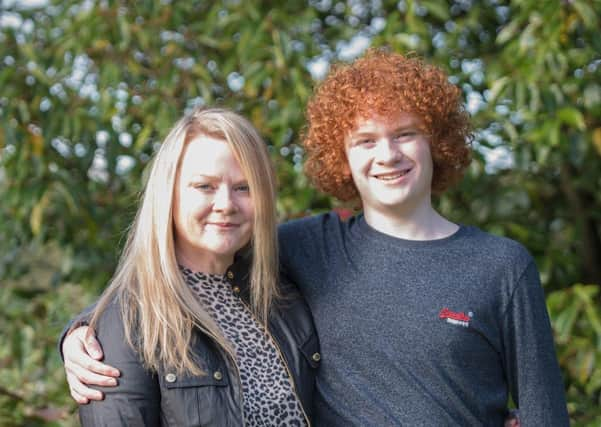St Andrews mum backs calls for neurodiversity in tech sector


Beverley Harrow’s son Geordie (16) has decided to pursue a career in cyber security after attending a Skills Development Scotland (SDS) workshop on ethical hacking at Abertay University. He is also now undertaking a Foundation Apprenticeship in Software Engineering following that workshop.
She has backed calls for people with neurodivergents to be encouraged to enter the tech sector, after SDS warned that companies were missing out on a massive pool of talent.
Advertisement
Hide AdAdvertisement
Hide Ad“Big companies such as SAP have been running pro-ND campaigns for a number of years and reports say that the programs are, and I quote, ‘already paying off in ways far beyond reputational enhancement’,” Beverley said.
“Those ways include productivity gains, quality improvement, boosts in innovative capabilities, and broad increases in employee engagement.
“That’s the message that needs to be promoted. I strongly believe that disability should never be a barrier to achievement, but to facilitate success it will take the combined skills of the educators and employers to make this the norm rather than the exception.”
Scotland’s technology industry, along with schools, colleges and universities, are being asked to do more to help neurodivergent people into jobs to plug the widening skills gap in the fast-growing digital economy.
Advertisement
Hide AdAdvertisement
Hide AdA new report published last week by Skills Development Scotland states that tech employers in particular are missing out on a massive talent pool, with proven skills that can improve productivity, creativity and innovation in the workplace.
‘Neurodiversity in Digital Technology’ states that at least one in ten of Scotland’s population are neurodivergent, but the true number could be far higher as many people are undiagnosed or don’t report themselves.
Although no figures yet exist that cover the entire neurodivergent population in work, statistics relating to autism showed that only 16 per cent were in full-time employment while 75 per cent wanted to work more hours but couldn’t find suitable opportunities.
The SDS report recommends tech employers take action to benefit from increased neurodiversity in their teams, including changing job ads to be more inclusive and easier to read, and introduce more flexible recruitment processes that aren’t just focused on form filling and offer more practical task-based interviews.
Advertisement
Hide AdAdvertisement
Hide AdThe report also made it clear more needs to be done in schools and further education to encourage neurodivergent people to study digital technology skills.
Speaking at the report launch at Scotsoft 2020 today, present pal founder Chris Hughes, who chairs the SDS working group on tech and neurodiversity, said: “We need to nurture neurodivergent talent from a young age.
“As the founder of a tech start-up myself, and having dyslexia, I know how challenging it can be on that learning journey.
“We need to change the attitudes of those with a poor understanding of neurodiversity, as well as their reactions to people who display different behaviours. We also need to adapt the way neurodivergents are taught, such as less focus on writing for those with dyslexia and less group work for those with autism. This can make a huge difference to people’s lives. And in turn that will have a positive impact on the tech sector skills gap.”
Comment Guidelines
National World encourages reader discussion on our stories. User feedback, insights and back-and-forth exchanges add a rich layer of context to reporting. Please review our Community Guidelines before commenting.